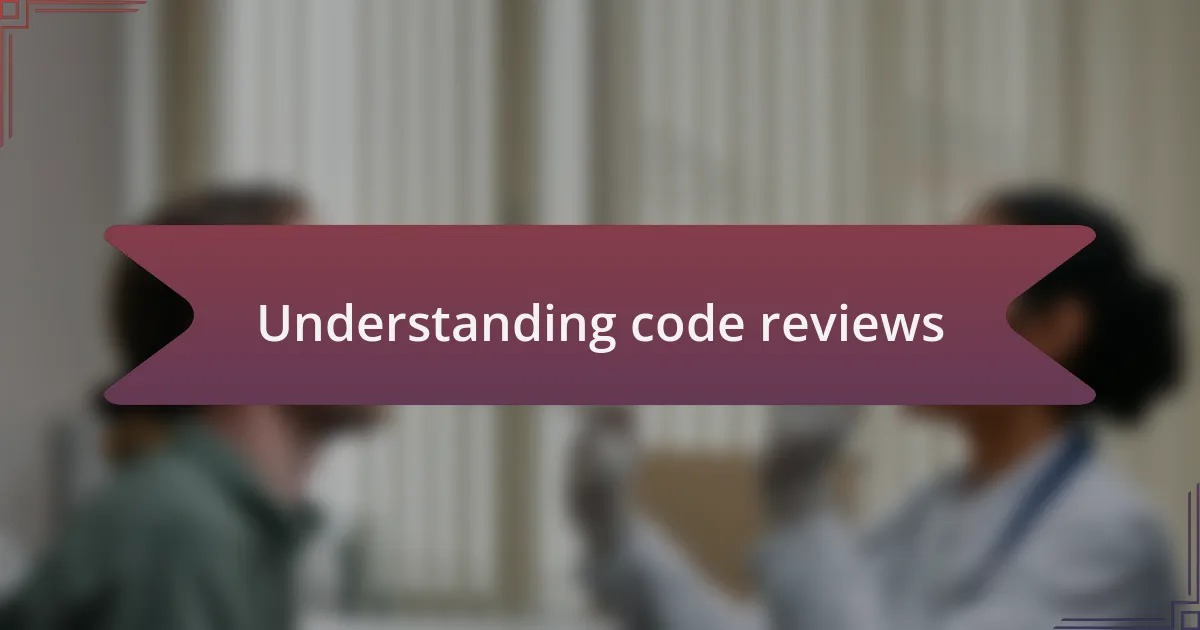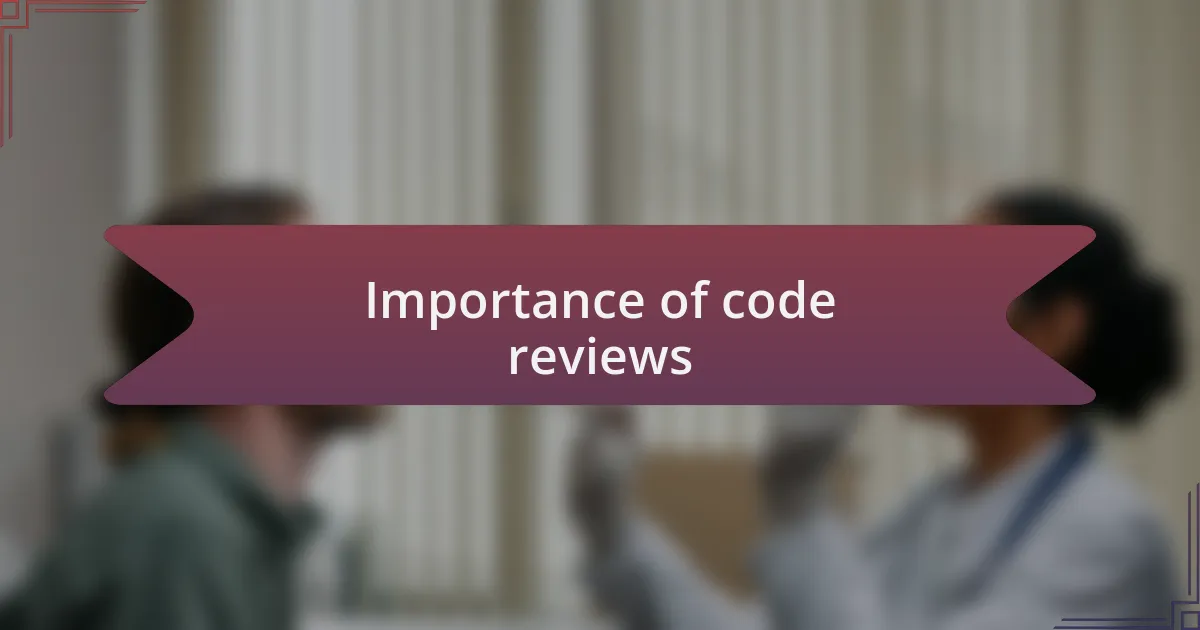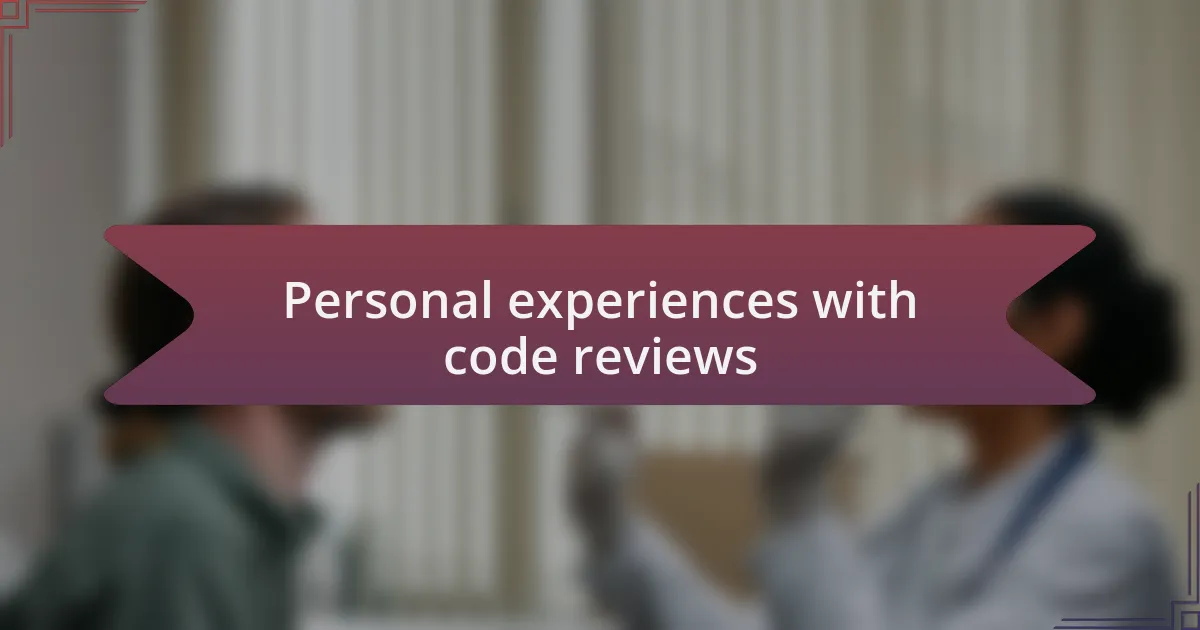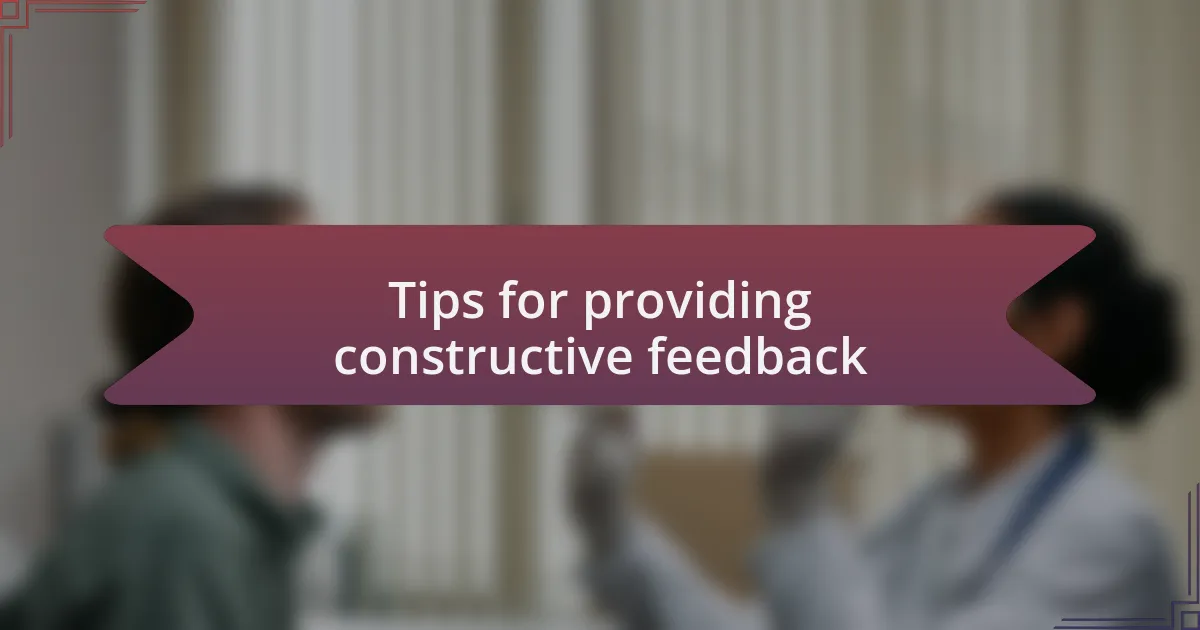Key takeaways:
- Code reviews enhance collaboration, foster knowledge sharing, and create a culture of continuous improvement among team members.
- Establishing clear guidelines, encouraging constructive feedback, and keeping reviews timely are essential best practices for effective code reviews.
- Utilizing tools like GitHub and automated review software streamlines the review process and enhances communication, leading to more productive outcomes.
- Constructive feedback should focus on supporting growth, emphasizing specific suggestions, and maintaining a positive tone to nurture team dynamics.

Understanding code reviews
Code reviews are a collaborative process where team members scrutinize each other’s code for quality and adherence to standards. I remember my first major code review; I was nervous, but the feedback I received was invaluable. It transformed my coding habits and ignited a passion for best practices that has only grown over time.
One of the remarkable aspects of code reviews is the opportunity for knowledge sharing. Have you ever noticed how a single piece of code can spark a discussion that reveals hidden nuances? I recall a session where a simple refactor turned into a conversation about design patterns, deepening my understanding and strengthening our team’s skills.
At their core, code reviews aren’t just about catching bugs or enforcing standards; they foster a culture of continuous improvement and trust. Think about it: when you actively participate in someone’s code evaluation, you are not just a reviewer but a mentor and a learner. This dynamic has always made me feel more connected to my team, reminding me that we’re all in this together, striving for excellence.

Importance of code reviews
It’s easy to overlook the significance of code reviews, but their impact can be profound. I remember a project where a simple oversight in a colleague’s code could have led to significant performance issues in production. That review saved us from potential disaster, illustrating just how crucial it is to have multiple sets of eyes on the work we produce.
Moreover, code reviews create a unique environment where collaboration thrives. Imagine sitting in a room—or a virtual meeting—discussing different approaches to a problem. I’ve experienced those “aha” moments when a teammate introduced a new perspective that I hadn’t considered. These discussions not only improve the code quality but also enhance our collective problem-solving skills.
Finally, engaging in code reviews instills a sense of accountability and pride in our work. By knowing that others will review my code, I feel motivated to put forth my best effort. It’s somewhat like having a safety net; even as I strive for personal excellence, the collaborative nature of code reviews reassures me that I’m never alone in this journey. Don’t you think such an environment nurtures growth not just as developers, but as a team?

Best practices for code reviews
One of the best practices for code reviews is to establish clear guidelines and expectations. I recall a project where we implemented a checklist for our code reviews, and it made a world of difference. Suddenly, the reviews became more structured, and issues that might have slipped through the cracks were caught consistently. Isn’t it comforting to know that everyone is on the same page?
Another key practice is to encourage constructive feedback rather than just pointing out mistakes. I remember receiving feedback that was more about improving my approach than just highlighting errors. It felt like a collaborative effort to elevate my work. How often do we get caught up in critiquing, forgetting that we’re ultimately working toward the same goal? Keeping communication positive fosters a supportive atmosphere where developers feel encouraged to grow.
Lastly, it’s important to keep code reviews timely and manageable. I’ve been part of teams where lengthy reviews turned into overwhelming experiences, making it easy to lose focus. When reviews are concise and conducted regularly, the process becomes far more effective. Have you ever found yourself dreading a review because it lingered too long? Shorter, focused sessions not only enhance productivity but also ensure that the code stays fresh in everyone’s mind.

Tools for effective code reviews
In my experience, leveraging tools like GitHub or GitLab can transform the code review process significantly. These platforms provide features such as inline comments and pull requests, which allow reviewers to engage directly with the code. I recall a project where we used GitHub, and it made collaboration so seamless that even remote team members felt connected. Have you ever wished for a tool that bridges distance and time zones?
Another game changer is the use of automated code review tools like SonarQube or CodeClimate. They not only catch common errors and code smells but also enforce coding standards across the team. I vividly remember the first time I integrated an automated tool into our workflow; it felt like adding a safety net. It gave me confidence, knowing that potential issues were flagged before human reviewers even stepped in. Isn’t it reassuring to have a reliable ally in identifying those stubborn bugs?
Lastly, integrating chat tools like Slack or Microsoft Teams can enhance communication during code reviews. I remember a time when a simple mention in a dedicated code channel led to a quick fix on a crucial bug. These platforms allow for real-time discussions and quick questions, which can streamline the process. Isn’t it nice to have that immediacy, rather than waiting for the next scheduled meeting? The ability to interactively discuss code can lead to more profound insights and faster resolutions.

Personal experiences with code reviews
I remember my first experience with a code review as if it were yesterday. The anxiety was palpable as I submitted my code, unsure of how my peers would react. When the feedback arrived, it was a mix of constructive criticism and encouragement, which allowed me to grow. Have you ever faced that moment of vulnerability, where you realize that feedback is a stepping stone rather than a setback?
On another project, I paired with a seasoned engineer during the review process. It was eye-opening to see how they approached feedback; each suggestion was framed as a learning opportunity, rather than a critique. I realized that fostering a supportive atmosphere could drastically change the dynamics of code reviews. Have you ever considered how the tone of the feedback can affect team morale and individual growth?
There was a specific instance where I missed a critical comment on my pull request, and it led to a bug in production. The disappointment was tough to swallow, but it taught me the importance of thorough follow-up. This experience reinforced my belief that effective code reviews are not just about catching errors, but also about building a culture of accountability and teamwork. How do you ensure that everyone feels responsible and engaged in the review process?

Tips for providing constructive feedback
Providing constructive feedback isn’t just about pointing out issues; it’s about creating an environment where team members feel safe to learn and improve. I recall an instance when a colleague received a comment on their coding style that felt more like a personal attack than a suggestion. I quickly stepped in, framing my observations in a way that emphasized team goals over personal flaws. It was a lesson in making sure my words support the coder’s journey.
I’ve also found that specificity is key when giving feedback. I remember reviewing a piece of code where the logic was sound but not clear enough for future developers. Instead of merely suggesting fixes, I sat down with my teammate to walk through the code, illustrating exactly what I meant. By doing this, I not only helped clarify the current issue, but I also equipped them with tools for future reviews. Have you ever truly considered how much a little extra time spent guiding someone can pay off in their development?
Encouragement goes a long way in feedback sessions. One time, I received feedback that seemed overly critical until I noticed the phrases that underscored my strengths alongside the areas needing improvement. My perspective shifted, and I realized the immense power feedback has to empower rather than diminish. Have you thought about how your words could inspire growth instead of simply indicating what’s wrong?